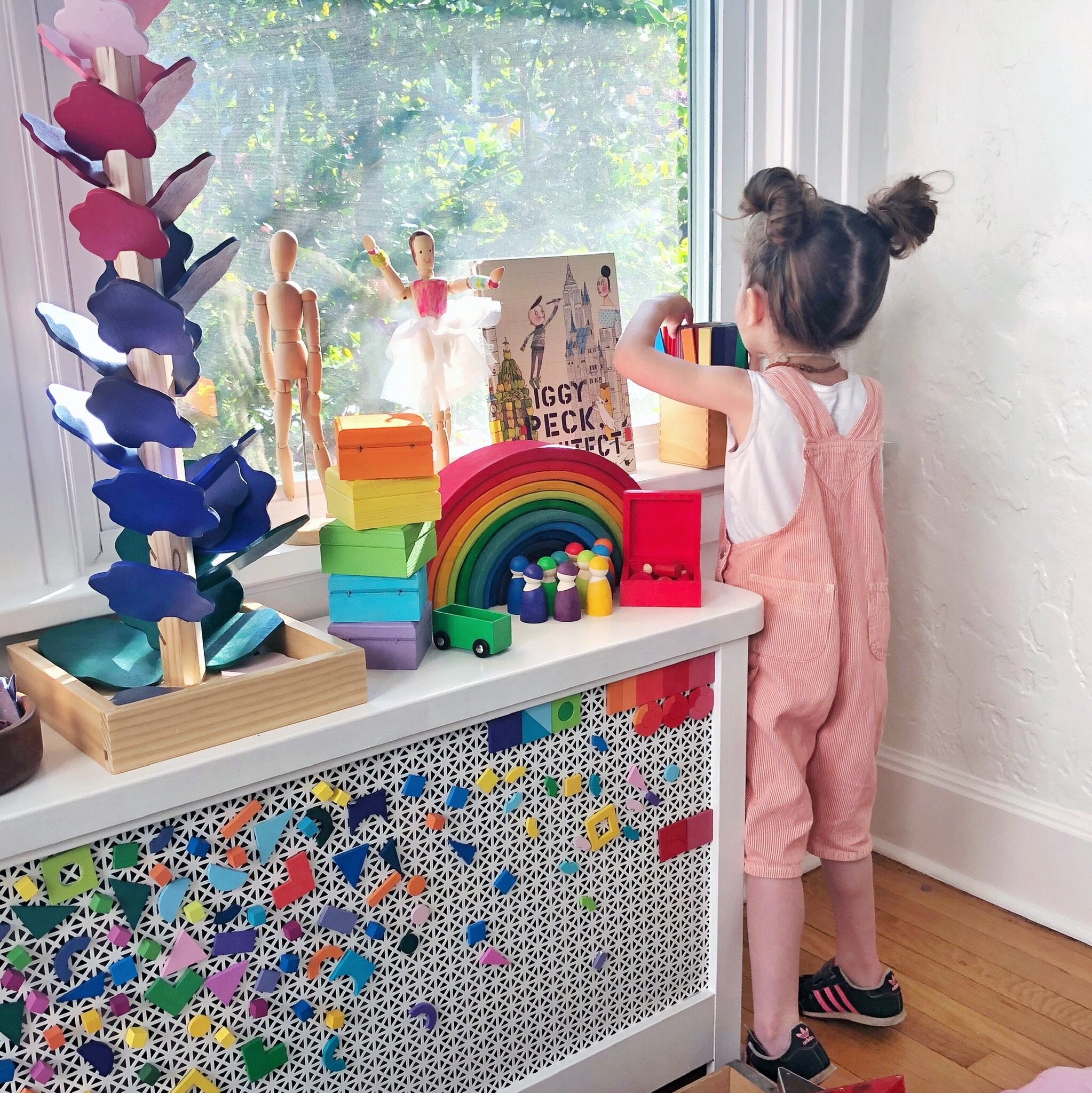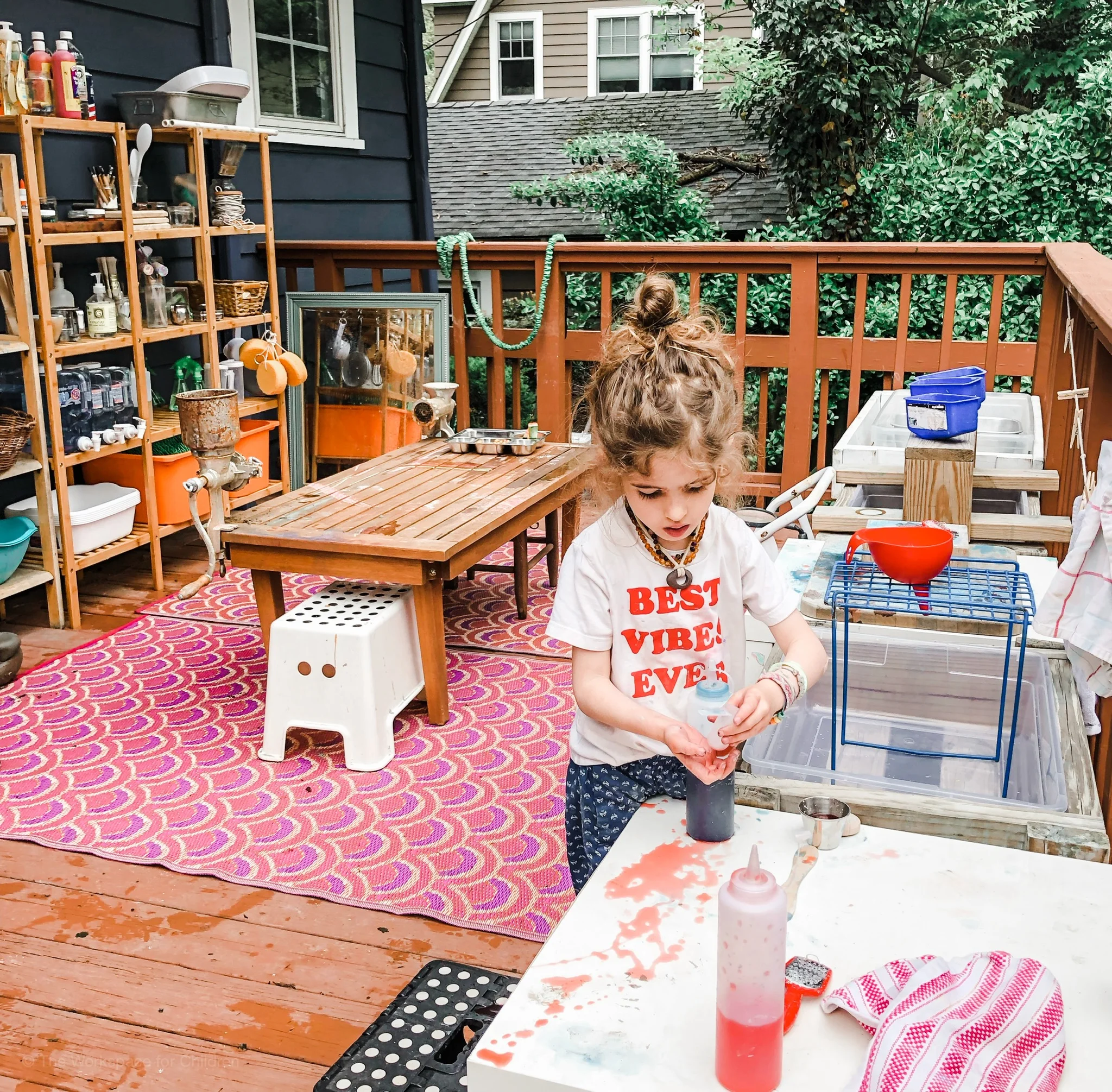How to Respectfully Decline Play
/You don’t have to play with your child every time they ask. Play is your child’s work, not yours.
“Can you play with me?”
“Not now, I’m in the middle of something”
“But PLEASSSEEE!”
We’ve all been in a position where we just don’t want to or can’t play at that moment.
The truth is, you don’t have to play with your kids EVERY time they ask you. Setting a clear, firm limit will encourage independent play. See below to find out how!
It can be hard for children to hear no, especially if that’s all they know or it’s what they’re used to.
Instead of saying something like, “not now”, tell them when you will be available. Help them get started, and remember, children like to be in eyesight of where we are. Set up a small basket of toys nearby and let your child play!
Here are some prompts that would be helpful for when you want to decline play:
Mom guilt is real, and that feeling like you HAVE to play with your children 24/7 is real too.
For more information and additional prompts and ideas, check out the Quiet Time and Independent Play E-book!
Check out some toys and activities below that are perfect for some quiet and independent play!
Giant Coloring Posters / Air Dry Clay / Animal Figurines /
Magnetic Wooden Blocks / Magnetic Building Tiles / Stacking Shapes
(These are affiliate links, which means The Workspace for Children gets a small kickback when you shop these links. Thanks for your support!)
SUBSCRIBE TO THE NEWSLETTER
NEW ON THE BLOG
CHECK OUT OUR E-BOOKS
QUIET TIME AND INDEPENDENT PLAY
This downloadable ebook is your personal guide to Quiet Time and Independent Play. This ebook will teach you the basic steps to implementing a Quiet Time and Independent Play strategy that works. The guide teaches you my proven 5 step method for implementing a daily break without using screens. (Guide includes 5 bonus invitations to play.)
$27
THE PLAY PLAN
The Play Plan is an ebook containing play invitations that are easy to set up, inexpensive, and apply children of all ages. The 25 play prompts are divided into five categories and use items that you most likely already have at home. These play prompts consider children of all ages, all developmental stages, and all learning capabilities. Each prompt can be tailored to fit your unique child’s needs. Play is meant to be simple.















